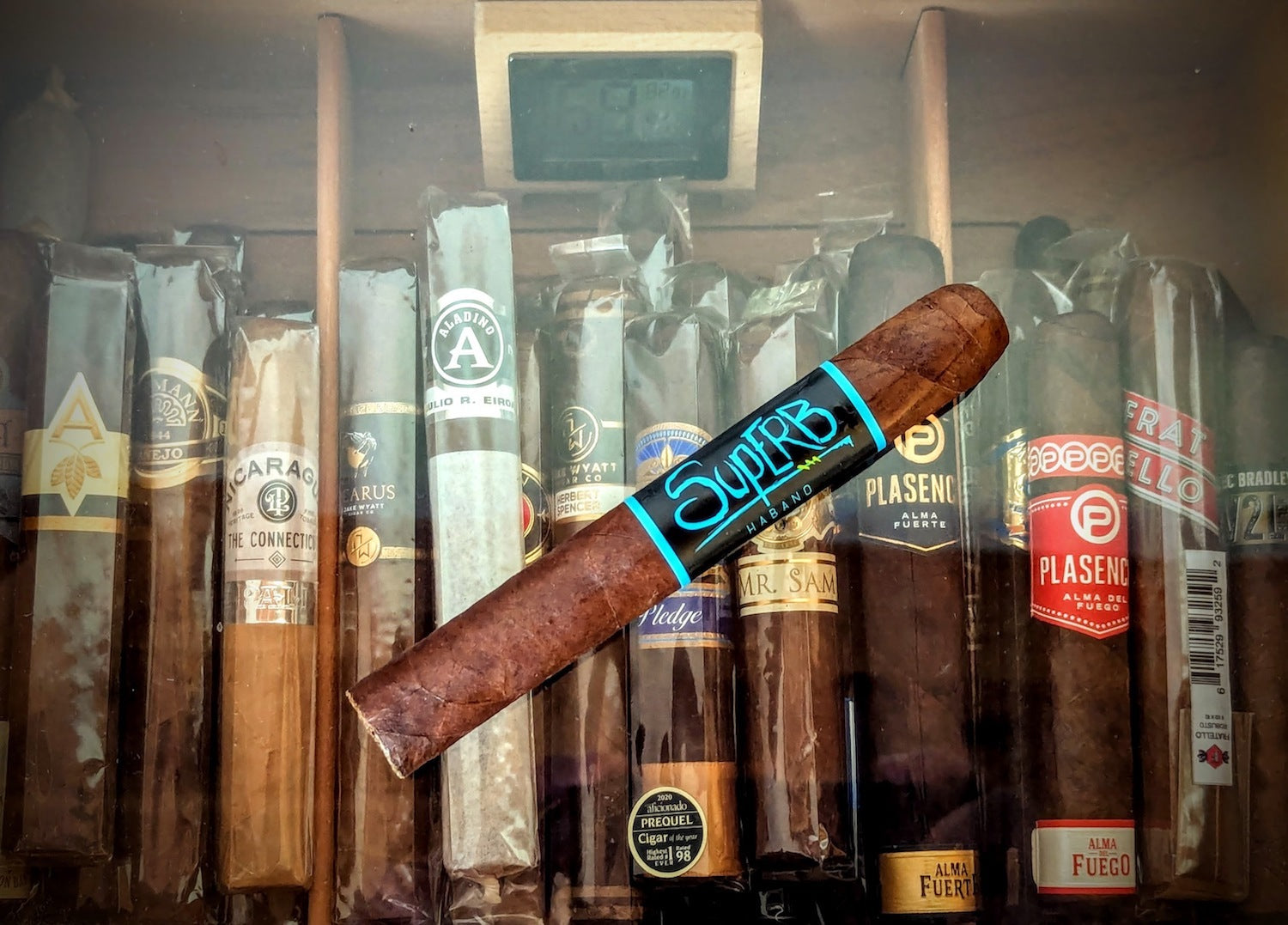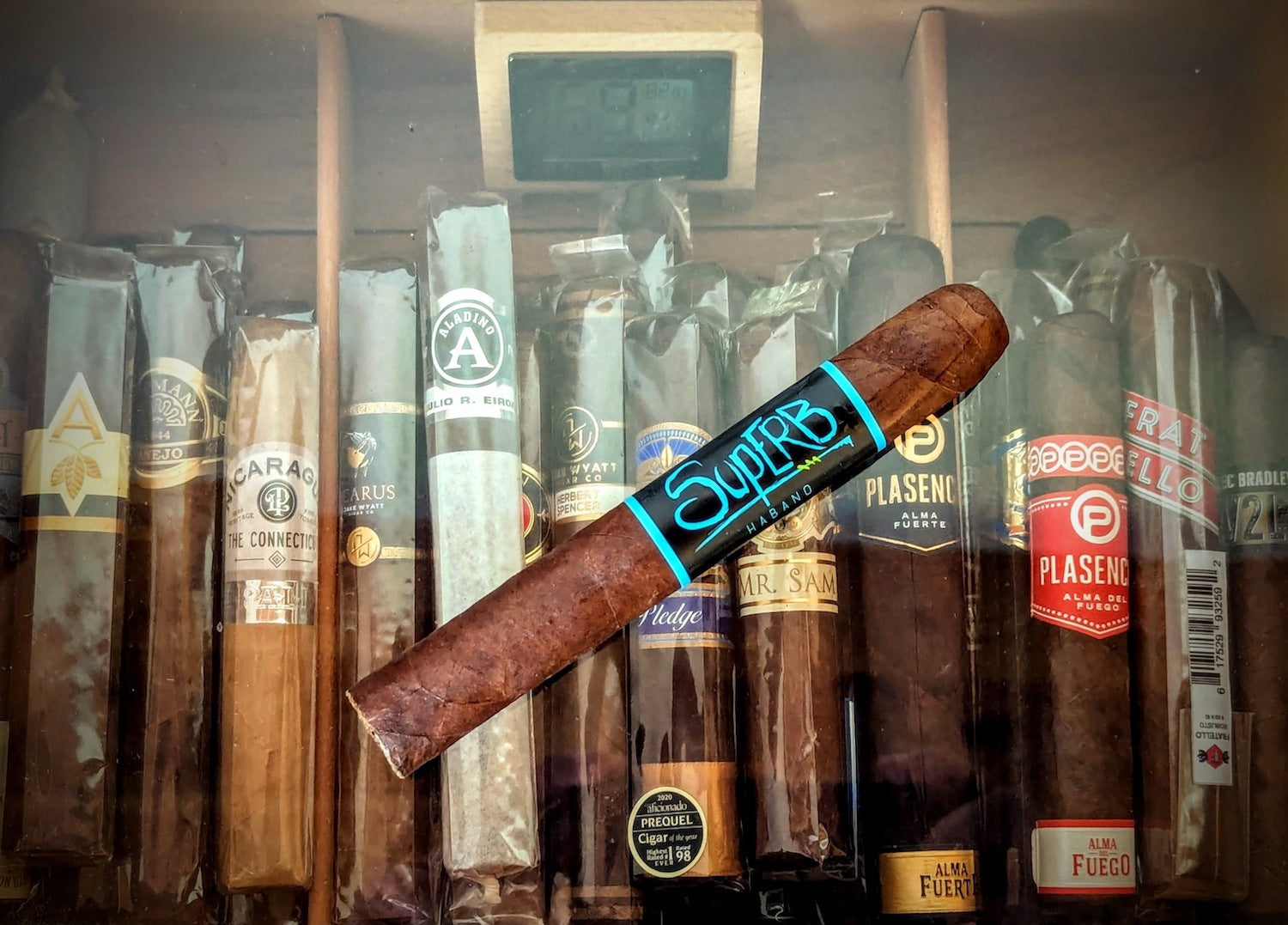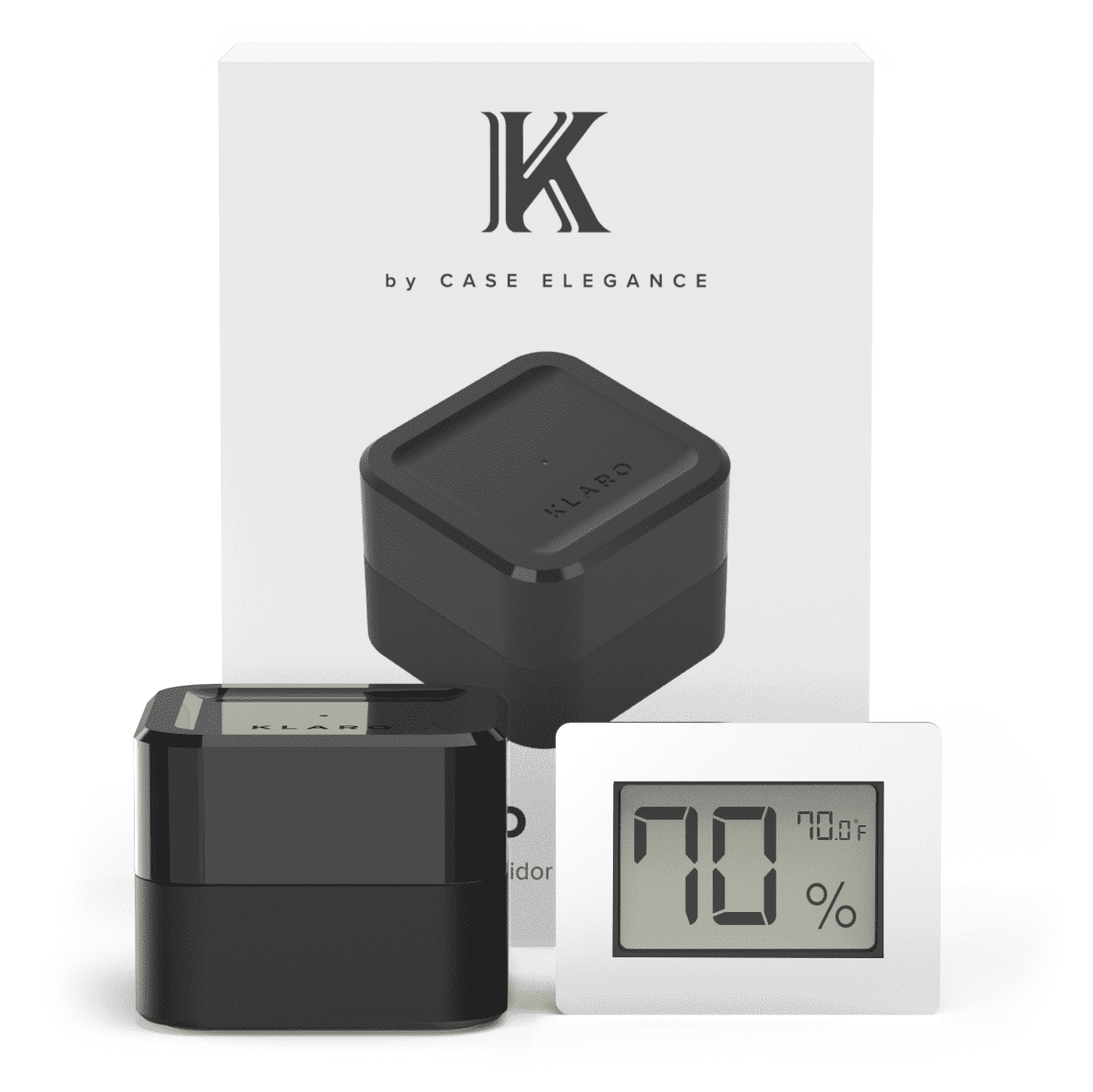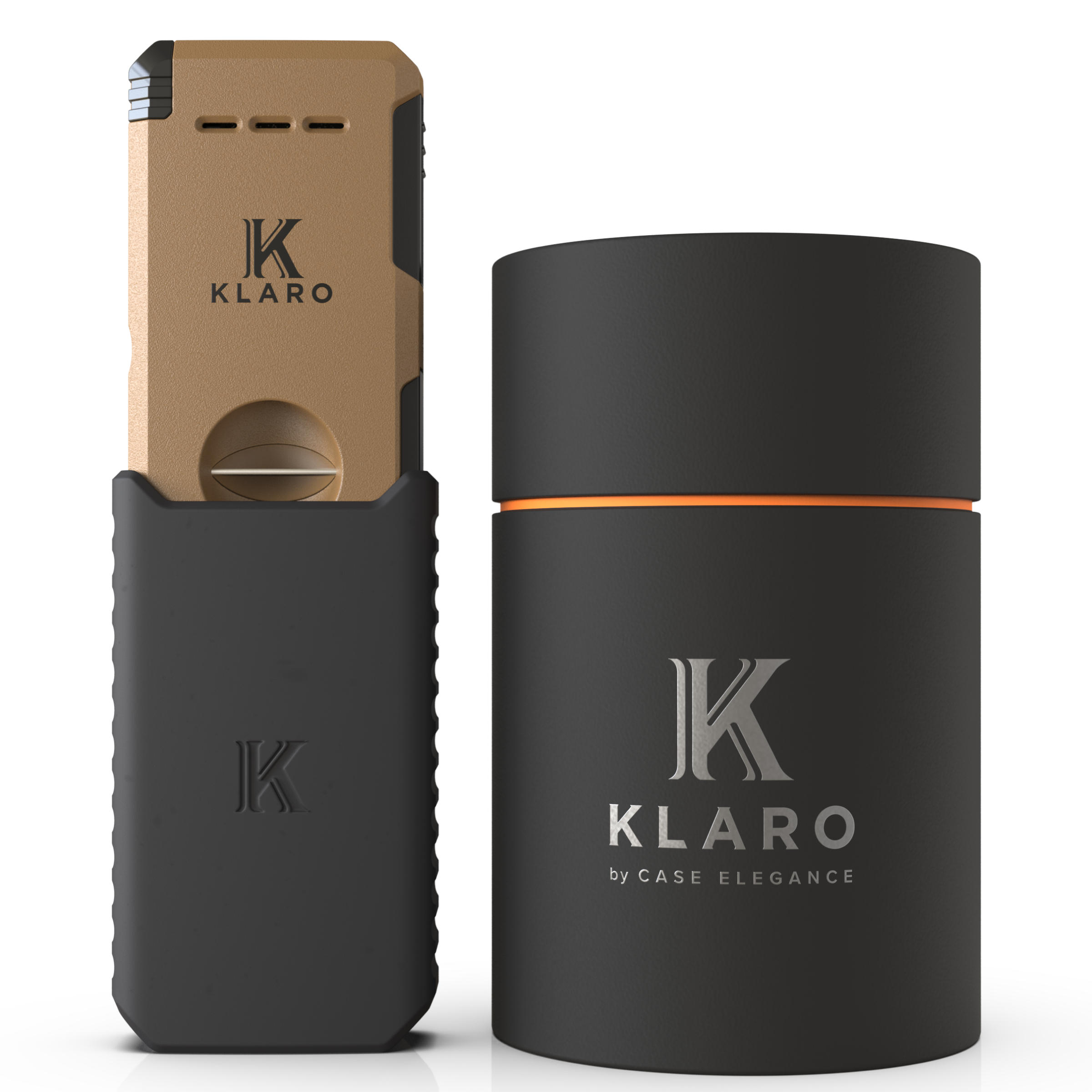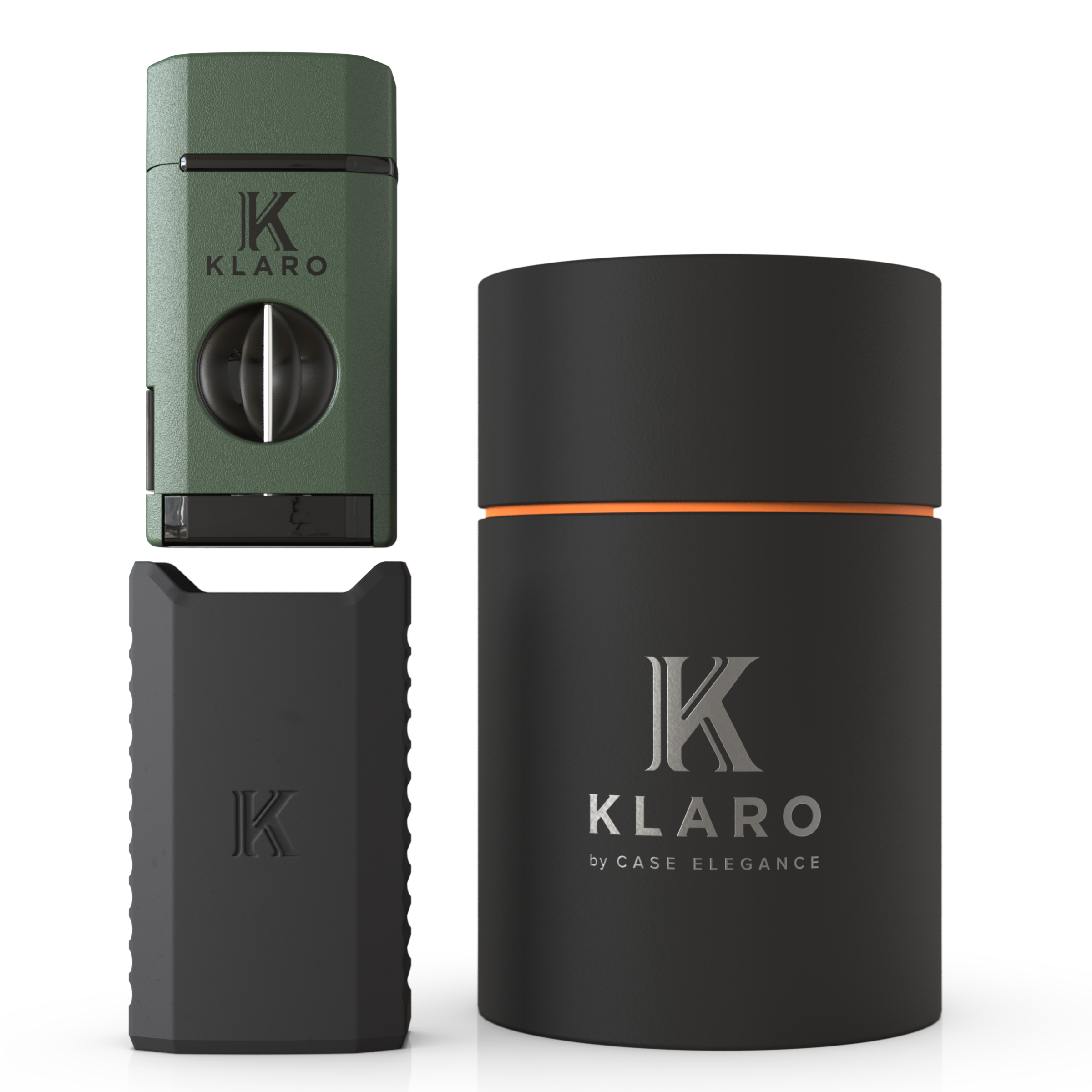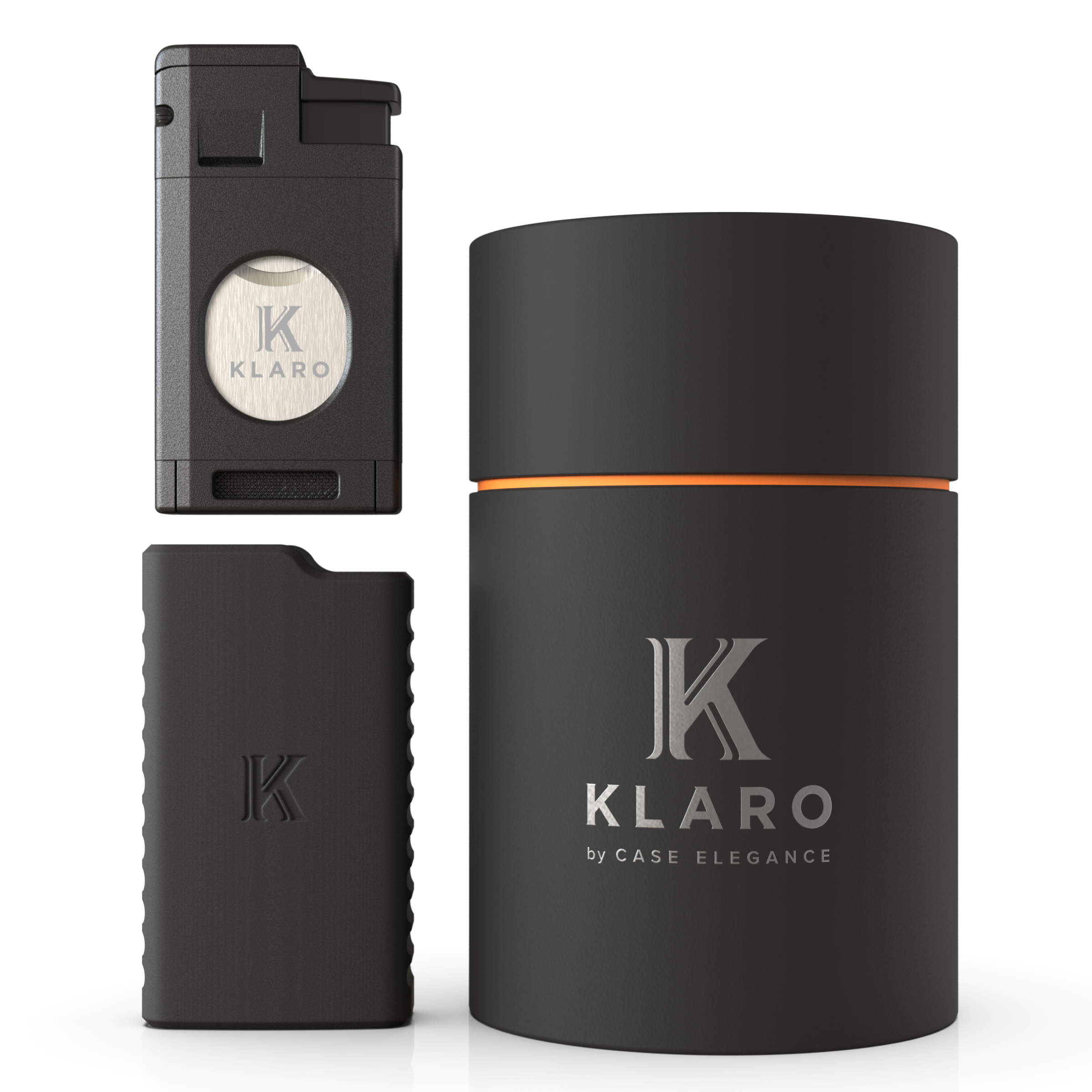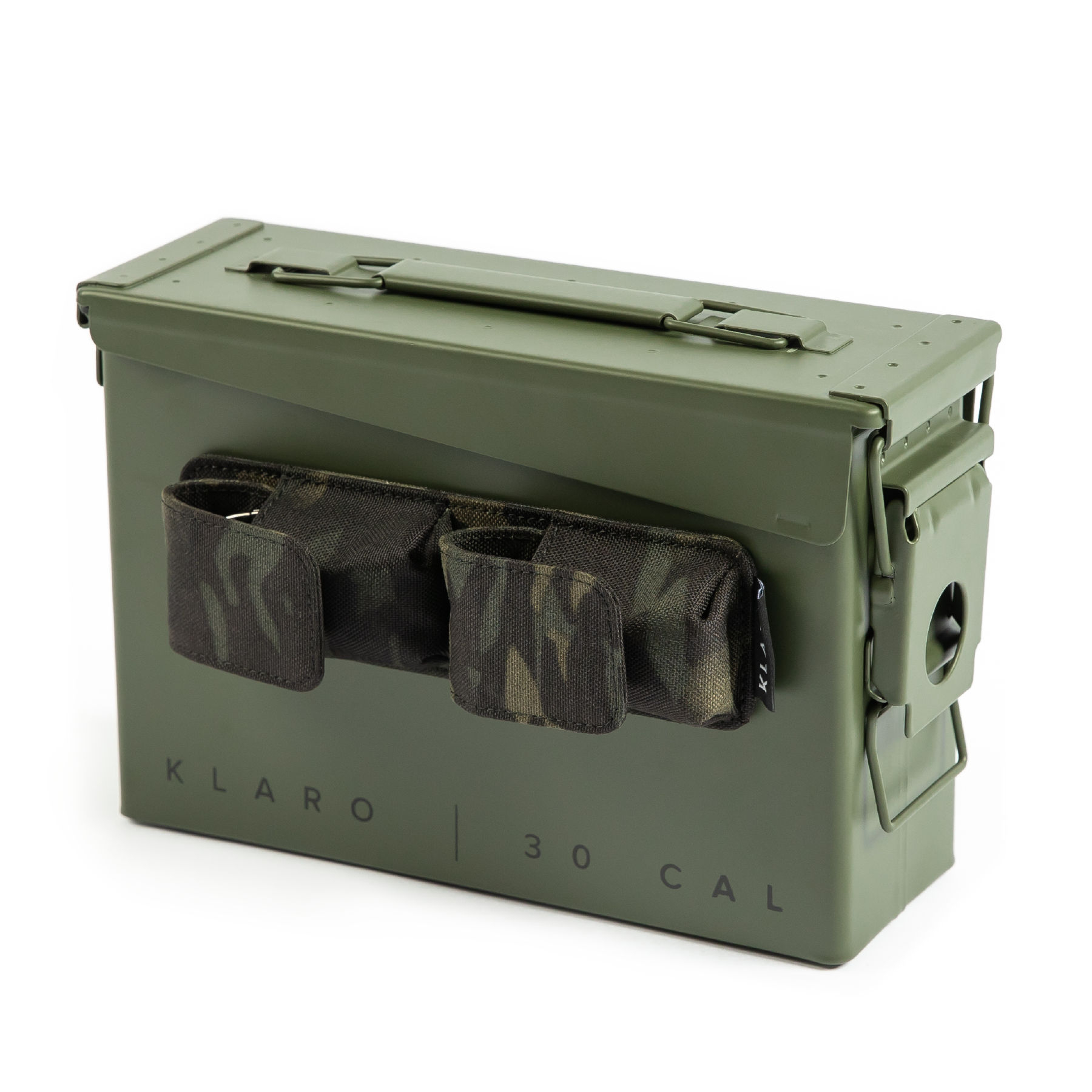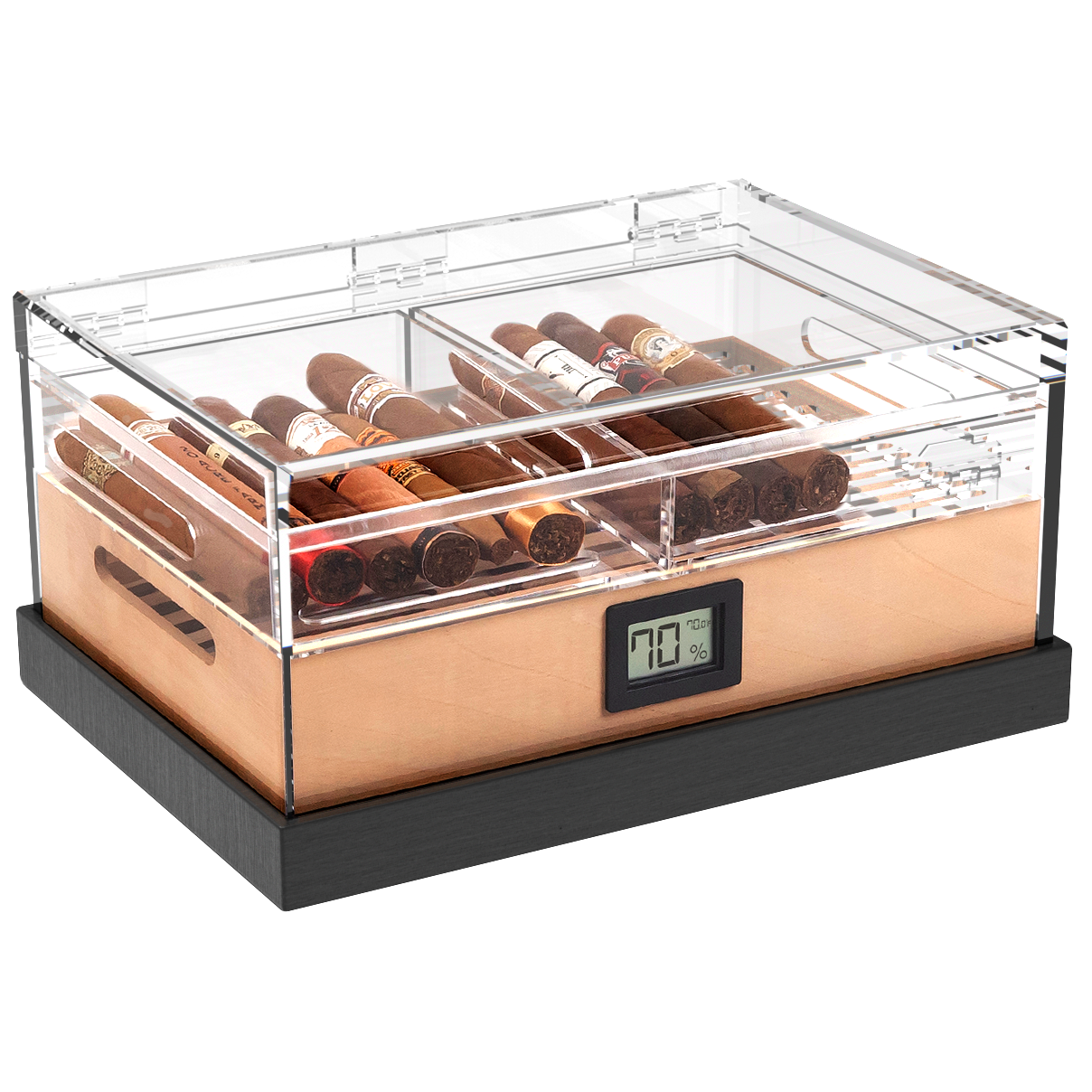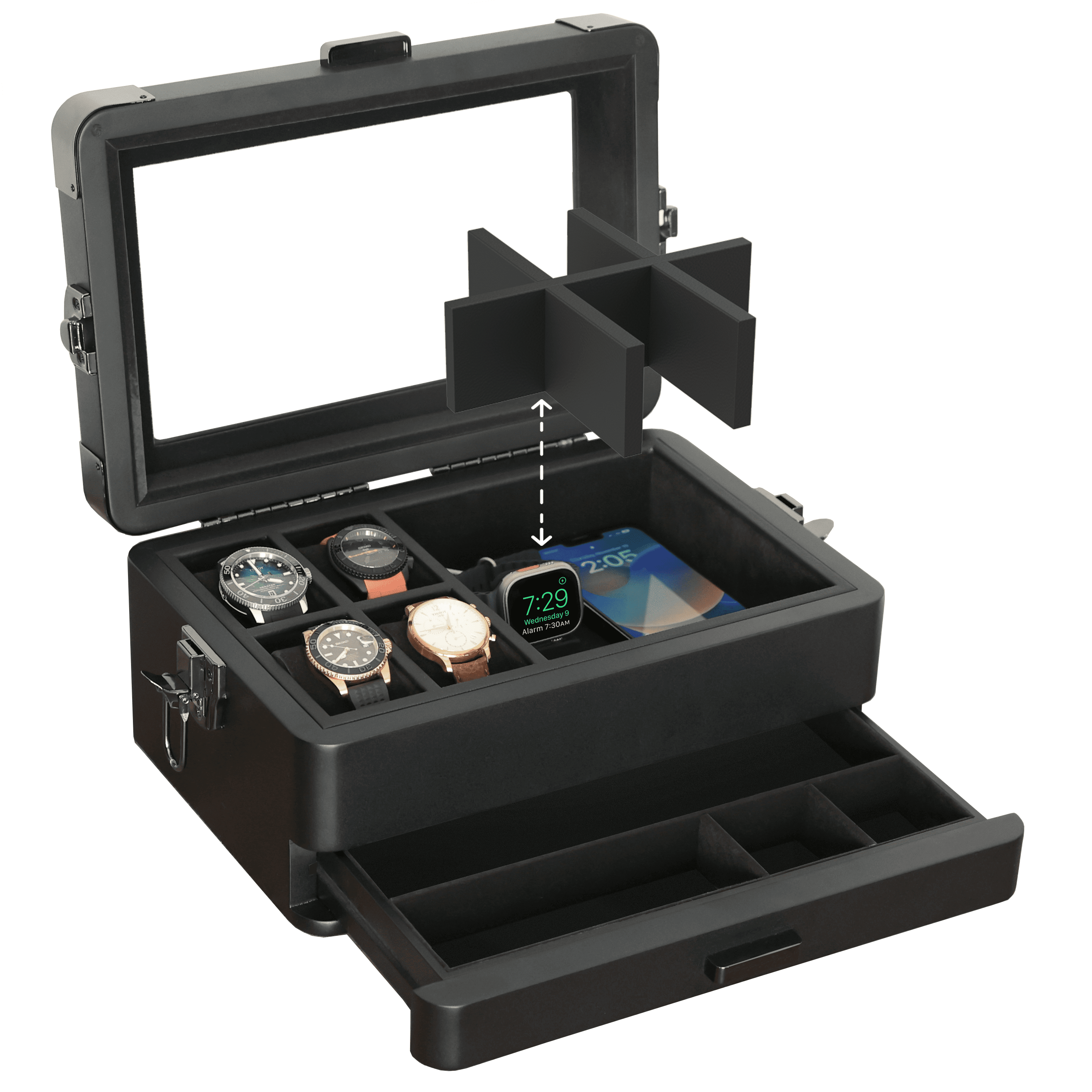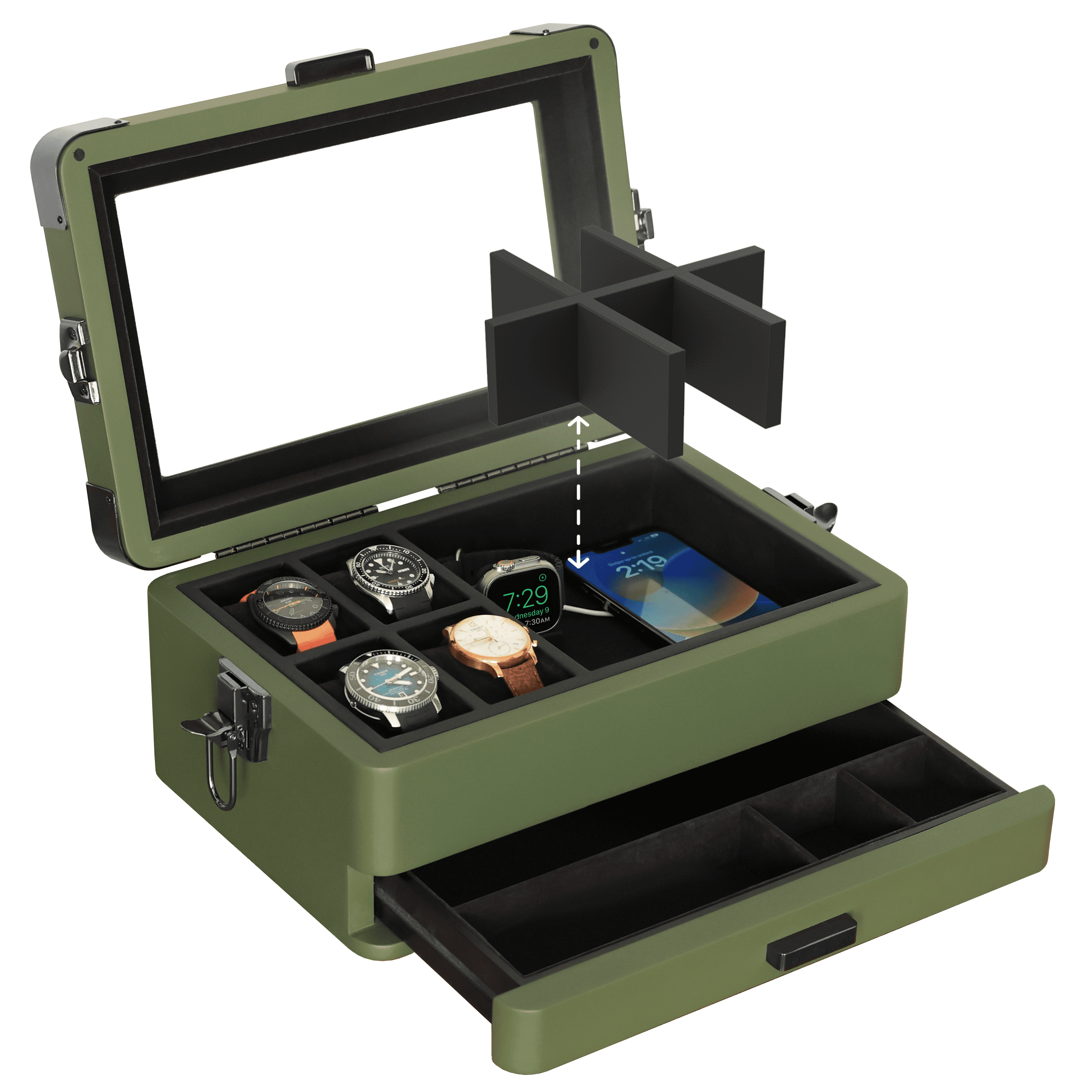For as much machismo that gets associated with cigar smoking, cigars are rather delicate items. Though typically made by hand and durable enough to be packaged and shipped around the world, the materials that make cigars are perishable and fragile—plant leaves rolled into a tube, more or less. Care for cigars improperly, and they can dry out and become unsmokeable. Instead, cigars must be stored in the right conditions to retain flavor and composition. And that mostly comes down to maintaining cigar humidity.
That’s why most cigar smokers and distributors use humidors to keep cigars fresh. By keeping humidity and temperature at the ideal levels, cigars can last longer and even improve their taste. However, storing cigars without a humidor poses a significant challenge.
While we at Klaro strongly recommend you always keep your cigars in a humidor, we realize that’s not always possible (though a travel humidor makes a handy tool in a pinch). Nevertheless, sometimes, DIY cigar preservation is needed. So we’re covering cigar freshness tips when you don’t have a cigar humidor.
Fundamental Concepts
Tobacco leaves go through a fairly substantial curing and fermentation process before being rolled into cigars. They are stored at the ideal humidity that prevents them from molding or from drying out. And, once rolled, most manufacturers age cigars for several additional months in those same ideal conditions.
But if cigars are exposed to conditions that are too dry, they quickly begin to dry out. This is true during the fermentation process and afterward. The ideal temperature for cigars and tobacco is 70 degrees Fahrenheit, and the ideal humidity is typically between 68-72 percent. Anything above this can cause the tobacco to mold, and anything too dry can cause the tobacco to dry out and even crack.
A humidor uses Spanish cedar to store and release moisture to maintain the ideal humidity for cigars. Without one, cigars are exposed to the normal outside humidity and are susceptible to drying out. So, without a humidor, you are left to improvise.
Temporary Storage Solutions

You can store cigars temporarily to prevent them from drying out. While these aren’t long-term solutions, they can help you protect your cigars in a pinch or for short periods.
Ziplock Baggy
A closed ziplock baggy will help isolate your cigar in a fairly stable environment. This protects it from excessive humidity. However, your cigar is still somewhat at risk of drying out, because the moisture inside the cigar can still be expelled.
To store cigars in a ziplock baggy, you may include a humidification source to prevent your cigar from drying out. A humidor pack is good for this, and some may include a damp paper towel. The problem is, you must not risk wetting the cigar in any way. When storing a cigar in a ziplock baggy, remove as much air as possible and store in a cool, dark place.
Tupperware Container
A Tupperware container helps create a similar isolated environment. Once you create a seal, the air inside the Tupperware should stay fairly consistent. The drawback is that, unlike Spanish cedar, the plastic can’t absorb excess moisture, so your cigars are subject to whatever internal humidity you have set the Tupperware.
You must rely on a humidification source inside a Tupperware. A humidor pack or wet paper towel can work. We also recommend using a hygrometer to accurately measure the internal humidity so you can adjust if too high or too low.
Cigar Jar
Sealed glass jars have long been used as temporary storage containers for cigars. Similar to the plastic baggy and Tupperware, the seal creates an enclosed environment for cigars to protect them from outside humidity fluctuations. Like a Tupperware humidor, you must use a humidification source and monitor internal humidity levels with a hygrometer for this to work.
Humidity Control Methods

You may notice a theme with our DIY humidors so far: You need an enclosed environment with a humidification source. Let’s explore other methods often used with DIY humidors.
The humidification source is especially important. Standard humidors often use a combination of humidor solution and gel crystals to release humidity into the air. Without them, you are left to improvise. Consider the following humidifiers that you might use:
- Shot glass of distilled water
- A sponge soaked with distilled water
- Boveda or humidor packs
These will eventually dry out, so you will need to monitor each if you plan to store cigars in a makeshift humidor for any significant amount of time.
But how do you know if your humidification source is working? To measure humidity levels, you will need to use a hygrometer. Analog and digital hygrometers are widely available for sale. These can be placed in your cigar jar, Tupperware, or other DIY humidor to observe humidity levels. We highly recommend using a digital hygrometer, as analog hygrometers are quite inaccurate when not professionally calibrated.
Alternative Storage Solutions
We mentioned other DIY humidor containers—so what are those? Again, remember that a DIY humidor container must create an isolated environment that is not susceptible to outside humidity conditions. So you are only limited by what you can imagine. For example, consider the following containers:
Using a Cooler (Coolidor)
You may repurpose a quality cooler to use as a temporary humidor. Coolers need an air-tight seal to keep cold things cold, and this can serve your purpose to maintain humidity levels. Our main concern is that coolers are often large, so you will have a harder time controlling the humidity levels. This can be done with additional Boveda or humidor packs, though.
Wine Cooler (Wineador)
Many people repurpose their wine cooler to be used as a humidor. This is especially handy when controlling temperature as well as humidity. Like any other humidor container, use a humidification source and monitor humidity levels. With wine coolers and regular coolers, consider using Spanish cedar planks to help control humidity, as well.
Best Practices for Short-Term Storage

So once you’ve created your temporary humidor, is there anything else you can do to maintain the quality and health of your cigars?
Properly rotating your cigars helps expose them to even humidification, and the same can be practiced with your DIY humidor. We do this to evenly expose cigars to the humidification source. Cigars stored closely to the humidifier will naturally absorb more moisture. Rotating your cigars every week or two will help even out this process.
Routinely inspect your cigars. Check your hygrometer, certainly, but also inspect your cigar with the pinch test, which should result in a firm and responsive texture, not brittle or soft. You might also roll the cigars between your fingers close to your ear. If you hear abrasive cracking, your cigars are likely too dry.
Environmental Considerations
If you live in an environment with extreme temperature and humidity fluctuations, you have your work cut out for you. Air conditioning solves a lot of these problems, but you want to make sure that your humidor or DIY humidor is stored in a cool, dark place away from sunlight.
Innovative Tips and Tricks

If you plan to try to store cigars long-term without a humidor, you should consider implementing Spanish cedar into your setup. Adding Spanish cedar planks or “spills” can help control humidity. When doing so, consider bolstering them with additional humidity when first introducing them into your humidor environment, because they will naturally absorb some of the moisture, potentially drying out your cigars.
You might also consider the use of a Spanish cedar box, which, when used properly, can help respond more healthily to fluctuations in humidity levels. Even with this method, make sure you still can achieve a tight seal and that you implement a humidification source.
Summary
So can you get away with storing your cigars outside of a humidor? Perhaps. We can’t stress enough the protection a proper humidor can give your cigars (or the peace of mind it can give you). But if you need to improvise, you should understand the components needed to create the best environment possible to protect your cigars.
But if you price is your concern, head on over to the Klaro Humidor collection and explore some of these quality, affordable humidors for almost any budget.

